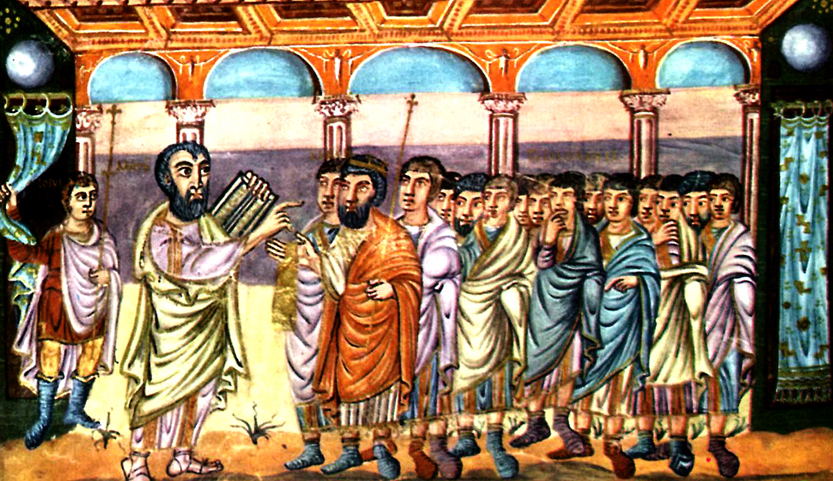Often in the stores told in the bible there is a main character the story revolves around and it can feel like it is their actions or their sole relationship with God that is driving the story.
However there is another, sometimes misguided, sometime powerful voice in the stories of the Old and New Testament: the people.
In the New Revised Standard Version (NRSV) translation of the bible, there are 1558 references to “the people” listed in the Old Testament, Apocrypha, and New Testament. Sometimes ‘the people’ are just background characters, there to give flavor to the story. Other times they are critical to the path the story takes.
‘The people’ as a character in the story, are very often foolish and make terrible choices. The entire book of Exodus is full of the people as a whole making choices that irritate and enrage God; misunderstanding God’s purpose for them; or sometimes, more rarely, thanking God for giving them what the needed, praising God and promising to be ever-faithful.
The people in the New Testament are just as fickle. Some days they are following John and Jesus around hanging on their every word. In others they are calling for Jesus to be put to death.
So when Pilate saw that he could do nothing, but rather that a riot was beginning, he took some water and washed his hands before the crowd, saying, “I am innocent of this man’s blood;[a] see to it yourselves.” Then the people as a whole answered, “His blood be on us and on our children!” So he released Barabbas for them; and after flogging Jesus, he handed him over to be crucified.
~ Matthew 27:24-26
Later, in Acts, ‘the people’ have swung around to another opinion and oppose the “…rulers, elders, and scribes assembled in Jerusalem, with Annas the high priest, Caiaphas, John, and Alexander, and all who were of the high-priestly family” (Acts 4:5) when these high-status people want to punish Peter and John for healing and speaking in Jesus’s name.
There is no way to know if this group of ‘the people’ was composed of the same folks who shouted for Jesus to die.
After threatening them again, they let them go, finding no way to punish them because of the people, for all of them praised God for what had happened.
~Acts 4: 21
What we do see over and over in stories in the bible is that ‘the people’ are an actor in the narrative and that they frequently drive the powerful, be it God or human leaders, to distraction.
The people, either when acting as a concerted mob or just as individuals that happen to support a specific goal in the moment, often change the course of the story.
The people, by their presence in the stories, also serve to remind the readers that the ‘named’ characters weren’t the only actors in the unfolding drama of the relationship between God and humanity.
It is never just Abraham and Sarah, or Aaron and Miriam, or Saul, or David; it is not just Peter and John, or Mary and Martha, behind all of those named in the stories is a universe of unnamed people who are sometimes central and some time peripheral to the story, but who will all be impacted by the choices made in the stories.
Just like the named characters, sometimes ‘the people’ get to act directly in the story and make terrible choices that must be recovered from or atoned for.
To me, the fact that ‘the people’ are not just passive background in the stories is a reminder that God’s relationship is not just with the named characters that appear in the bible, but with all of us. The new covenant God made through Jesus is not just with the disciples but with everyone.
Jesus went throughout Galilee, teaching in their synagogues and proclaiming the good news of the kingdom and curing every disease and every sickness among the people.
~Matthew 4:23
————-
All bible quotes are from the NRSV text at Bible Gatewayunless otherwise noted.
Kristin Fontaine is an itinerant Episcopalian, crafter, hobbyist, and unstoppable organizer of everything. Advent is her favorite season, but she thinks about the meaning of life and her relationship to God year-round. It all spills out in the essays she writes. She and her husband own Dailey Data Group, a statistical consulting company.

